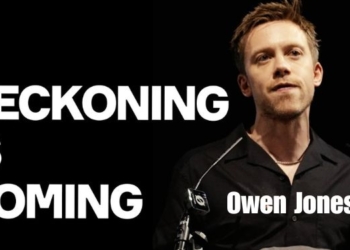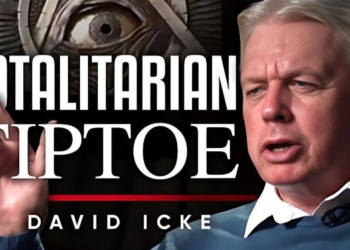
Pursue what is meaningful, not merely what is immediately expedient. Stand up straight and face the world with courage and confidence. Get your own life in order before you go out and try to save the world. Treat yourself like a person whom you are responsible for. Tell the truth.
These incredibly obvious pieces of advice are some of the aphorisms found in one of the biggest selling books of the moment: Jordan Peterson’s 12 Rules for Life. The success of the book and the “academic rock star” status it’s author has achieved recently suggest just how far we have gone off track in teaching the young about life, when such aphorisms come as revelations to many.
Still, 12 Rules for Life is a very good book, and one that many people could benefit from reading. Peterson, who has a vast network of followers on YouTube, is predominately attracting a younger male audience, and I suspect that the book will appeal mostly to them. I see his influence as being a positive development in the evolution of masculinity, as I argued in a recent blog post. Even I, as an older male, found much of value in the book. And women of any age could easily benefit from it as well.
One theme that runs through the book is that we need to teach responsibility to children by setting appropriate boundaries. We also need to let them play and explore the world, to make their own mistakes.
Now, given that so many of us adults had deficient parenting, we must teach ourselves such practical wisdom.
Contained within many of the author’s points are fascinating anecdotes and specific, practical applications. Peterson tells stories gleaned from his own life experience, as well as from his experience as a clinical psychologist. There is a lot of history to draw from. The tales keep the text alive, much as with his online videos.
Jordan Peterson’s background as a psychologist influences his teachings. He draws upon biology and evolutionary theory to help explicate many of his points. He famously compares human neurophysiology to that of the lobster, while making the point that we exist in hierarchies that are at least partly explicable as evolutionary patterns. His advice is then to “stand up straight”, following the example of the body language of dominant lobsters. But Peterson is no biological determinist, as his online videos show. He’s simply acknowledging that we humans are not merely ghosts in biological machines, whereby free will and culture determine all behavior.
Biblical allusions
Jordan Peterson draws from many religious and spiritual traditions to clarify and expand his insights, but most frequently from Christianity. One aspect of the book which I found challenging to navigate is the frequent biblical narratives. Using a Jungian approach (Joseph Campbell, if you prefer), some chapters in the book ramble a little, and could be made shorter. The connectivity between some points also sometimes seems unclear. Yet that could have been because I read quickly.
Having said this, the biblical allusions Peterson uses have reopened my mind to the Christian tradition. In mainstream, non-ecclesiastical circles, Christianity is often looked upon negatively. On the political left, it is typically criticized and distained, often at levels which would be termed bigoted if such scorn was directed at any other religion. Perhaps a more balanced perspective is required, lest we jettison entirely a formative wisdom tradition which has helped define us.
Peterson is presumably a Christian, just not a fundamentalist one. He has made the valid point that much of the thinking and values which underpin western thought and legal structures are Christian. Many of the stories in The Bible, including the idea of God, are thus archetypal. They are deeply imbedded within our psyches, even if we do not identity as Christian. Still, it may take some degree of self-discipline for some to wade through the religious mythology.
Commandant Peterson?
Jordan Peterson has engendered hostile reactions which border on hysterical in some cases – and that is not an exaggeration. As just one recent example, a Wilfred Laurier University Committee diversity committee tried to sanction Lyndsay Shepherd, a teaching assistant, for showing part of a television news clip which featured Peterson. Showing the clip as part of a class debate violated the school’s policy on gendered and sexual violence, she was told. One member of that committee compared Peterson to Hitler, even as he scolded Shepherd.
Peterson’s criticism of bill C-61 was seen by some as an attack on LGBT people in general, but a more reasonable assessment is that it was a criticism of compelled speech and a warning about the encroachment of far-left ideology into the legal system of Canada.
Peterson’s outspokenness on the topic could conceivably have spelled professional suicide for him. Instead, the publicity his resistance to the bill garnered, launched Peterson into the public limelight.
In my opinion, a fair assessment of 12 Rules to Life and Peterson’s teachings should negate any fear of an impending Nazi apocalypse. The book is not heavily political, making only brief diversions into politics and ideology.
Nonetheless, it must be acknowledged that online Peterson is very clear in his criticisms of liberal progressivism, and its recent authoritarian predilections. Some see this as vindication of the alt-right, which again is an overreaction. I suspect his work is more likely to pull young men away from the alt-right than to take them there, given that he is openly critical of the far right and authoritarianism in all its forms. My sense is that such critics have typically invested much time, professional training or emotional energy into the various ideologies and philosophical expressions associated with progressivism, and are unwilling to bring critical reflection upon those ideas. This is understandable, because at the level of mind, we naturally feel fear (and respond angrily) when our view of reality is threatened. Peterson represents a threat to many on the far left, because he is willing to stand up and speak his mind. Peterson walks his talk.
One reason why I feel he can be relied upon to responsibly mediate the current cultural divide is that Peterson is an advocate of introspection and shadow work – looking within the psyche to honestly acknowledge what lies within, no matter how dark. His book lays this ideal down clearly. We are all capable of descending into that darkness, and we must be vigilant to avoid the fate. Such honest introspection is precisely what is often missing from progressivism today, largely because it has established an attitude of moral superiority over opposing voices. This is one reason why it has betrayed many of its founding principles, and is often intolerant and authoritarian.
Peterson the Guru
Western society has set far too many men adrift, chronically shaming males and defining masculinity via its pathological expression. 12 Rules for Life may help many men to find confidence and direction amidst this extreme turn. And for that we should greatly thank him. Of course, given the huge amount of publicity Peterson’s media appearances have generated, there are potential downsides to all this.
Peterson has become a father figure to many, as well as spiritual mentor. This is occuring in the context of a society which has severely shamed masculinity and devalued fatherhood. Relating to Peterson’s paternal qualities is a healthy development if expressed responsibly.
Yet it seems to me that some of his followers are projecting far too much responsibility onto Peterson for their lives. I call this “giving away your power.” It is a common issue in spiritual circles. Indeed, I would say that it is almost a universal phase of personal and spiritual development. I am no exception, and gave my own power away to one or two spiritual and psychological guides as a younger man. Still, it is to be hoped that those who do this will quickly pass through the phase and assume greater responsibility for their lives. After all, taking responsibility is a central theme in Peterson’s teachings.
The huge and almost fanatical following that Person has now gathered will naturally produce backlash from those jealous of his success, or who find his teaching incompatible with their own ideals. In turn, online clashes are emerging. I’m not sure what can be done about this, expect for individuals to simply refuse to engage unhealthy online projections. Hateful or violent expressions by some of his fans have already been used to create a case against Peterson. Yet it is hard to blame Peterson for this. Should we blame Obama or Noam Chomsky for the Antifa campus and street violence we have seen in recent times, simply because they cite these figures’ ideals?
In 12 Rules for Life, Peterson implores us to focus our intent, to find meaningful work and self-work in order to help make the world a better place. For that is the best way that we can move forward and develop lives of power and purpose. He does not promise utopia. He merely suggests that personal responsibility, meaning and purpose should form a central part of the life journey, regardless of the outcome.
And who can argue with that?
12 Rules for Life is imperfect, but I highly recommend it. It contains much wisdom and thought-provoking philosophy from one of the most courageous and influential thinkers of our time.







![Who Is Bobby Kennedy? [30-Minute Film on RFK Jr.’s Life, Narrated by Woody Harrelson]](https://consciouslifenews.com/wp-content/uploads/2024/05/who-is-bobby-kennedy-350x250.jpg)






![Everything You Ever Wanted to Know About 9/11 Conspiracy Theory in Under 5 Minutes [VIDEO] | by James Corbett](https://consciouslifenews.com/wp-content/uploads/2018/09/911-a-conspiracy-theory-120x86.jpg)
